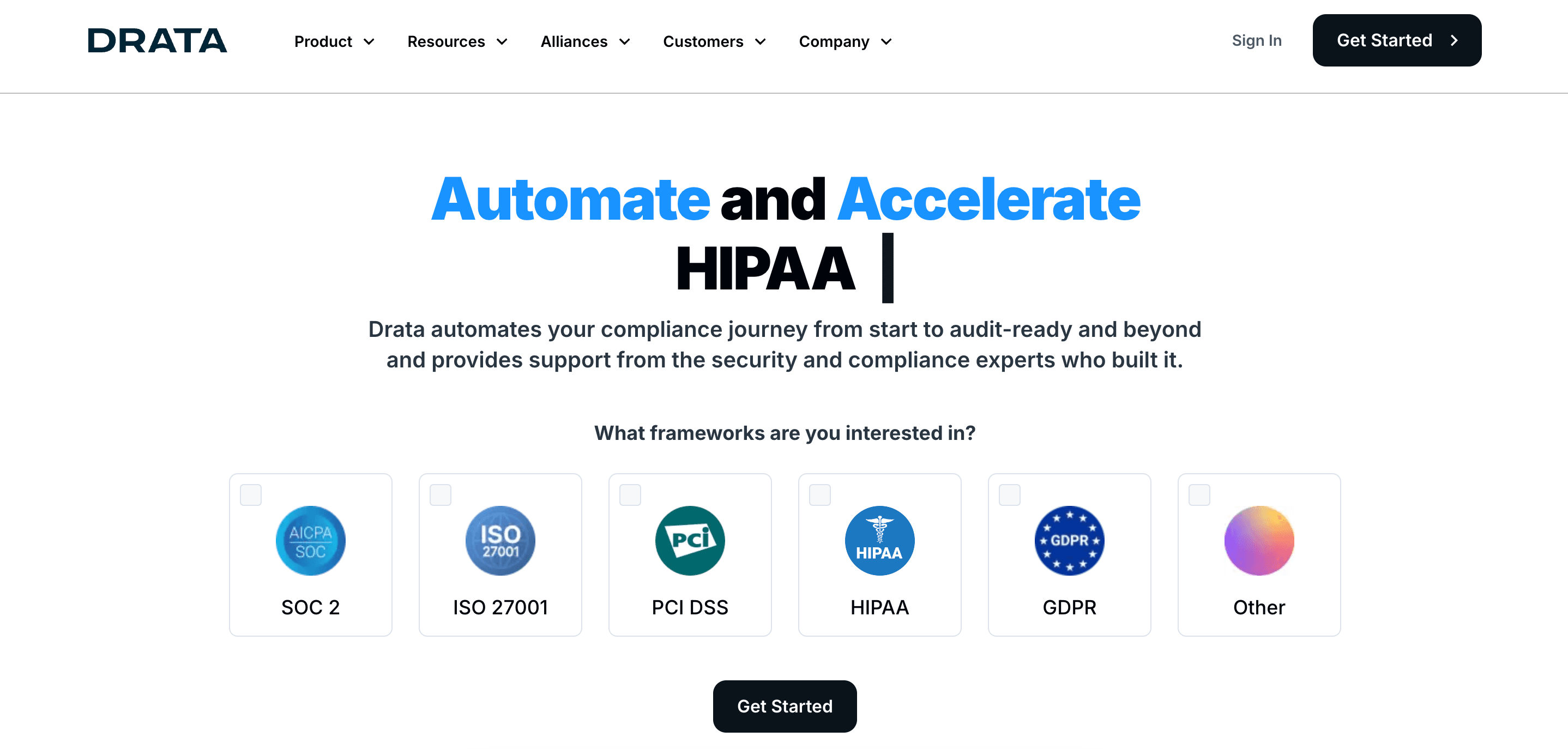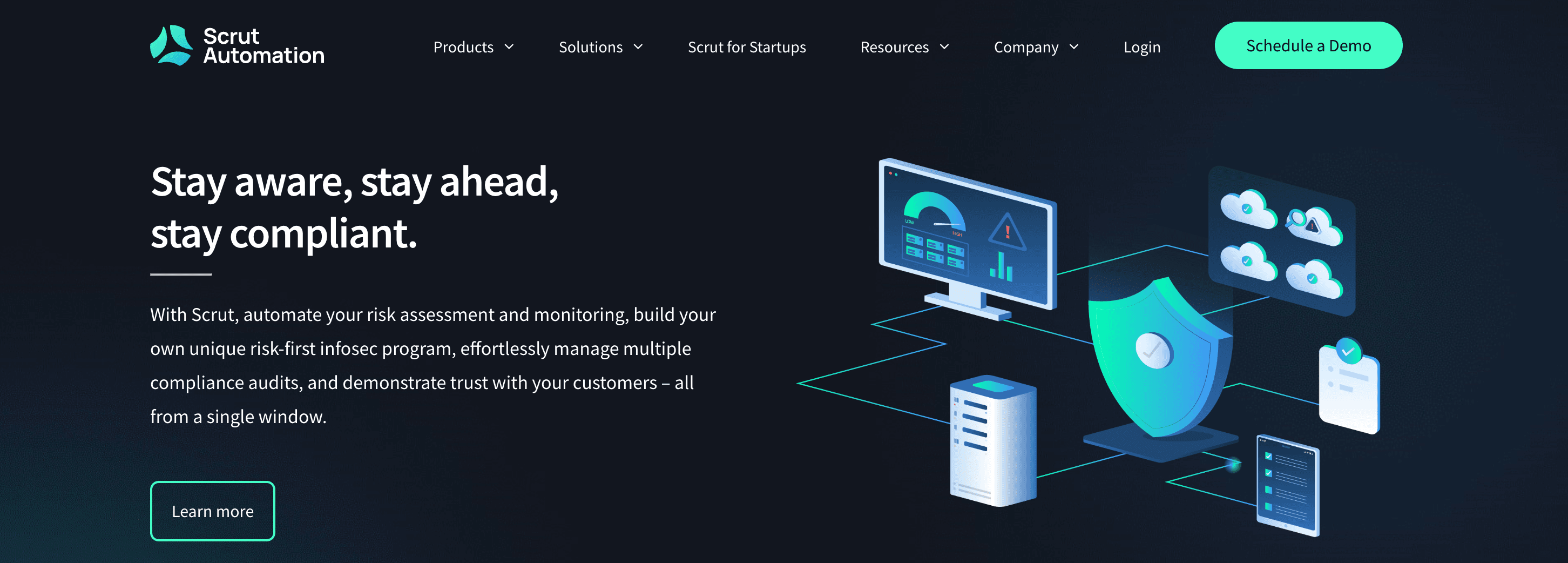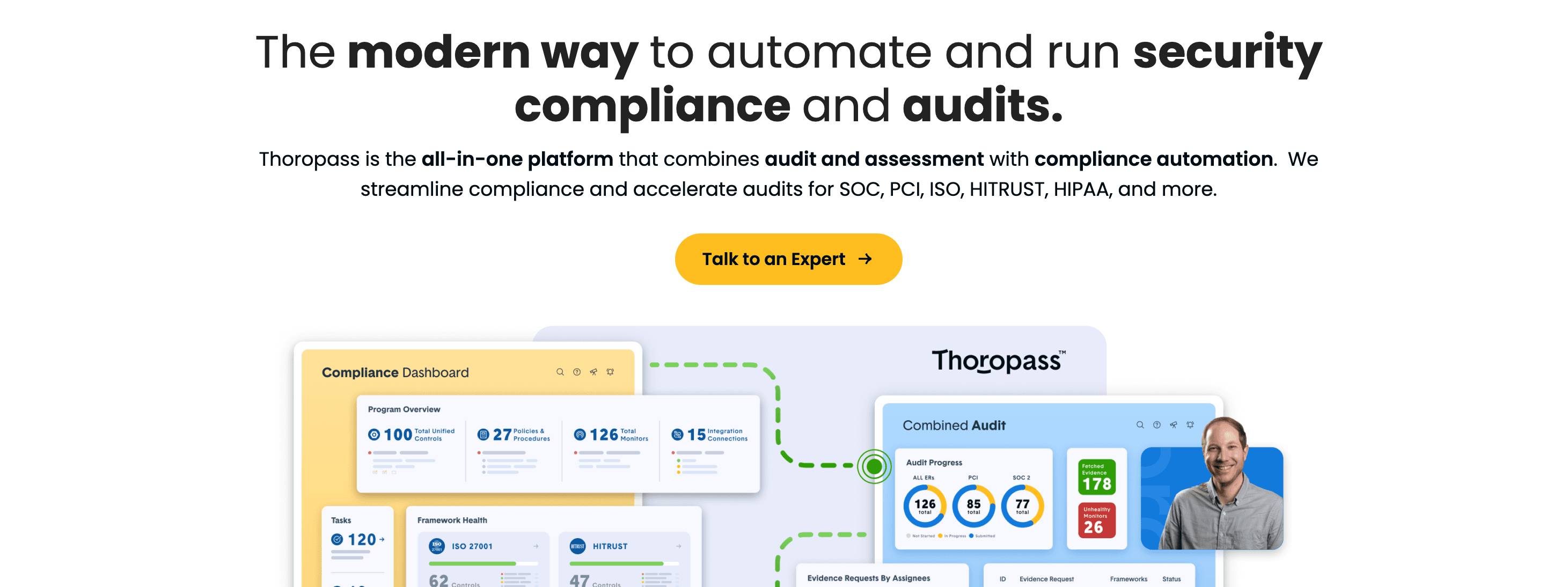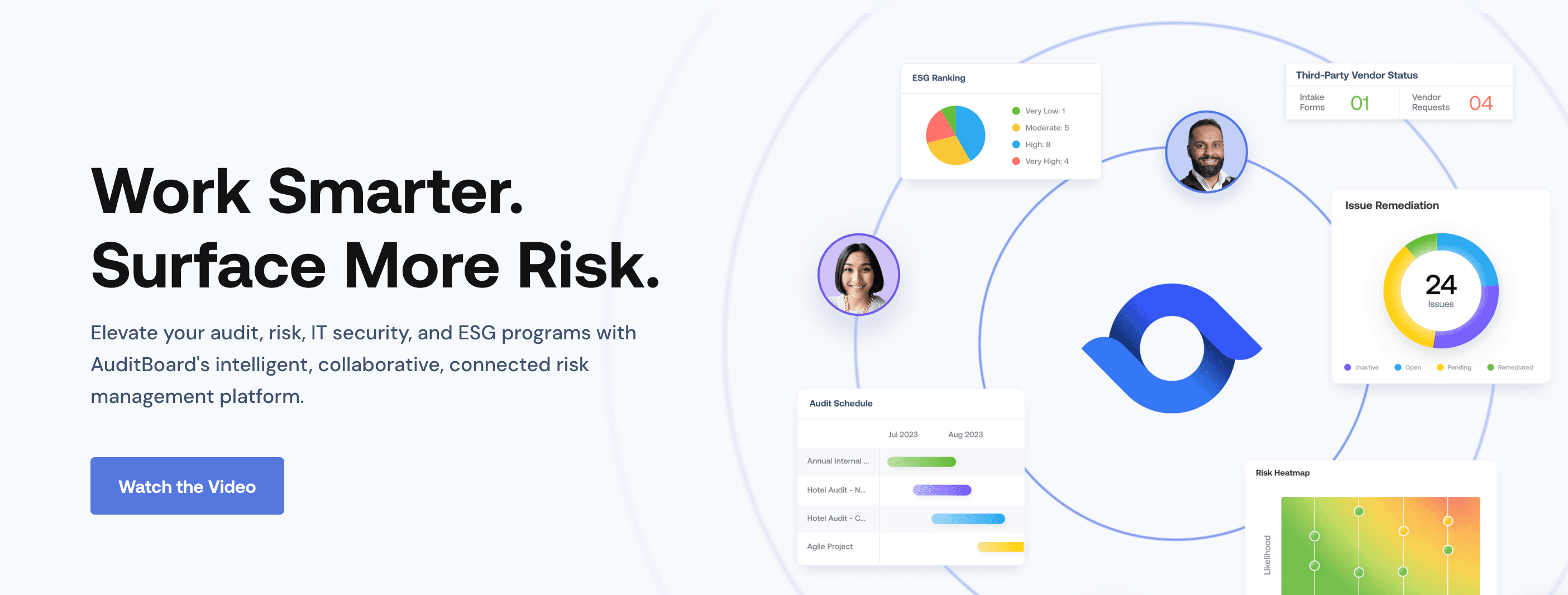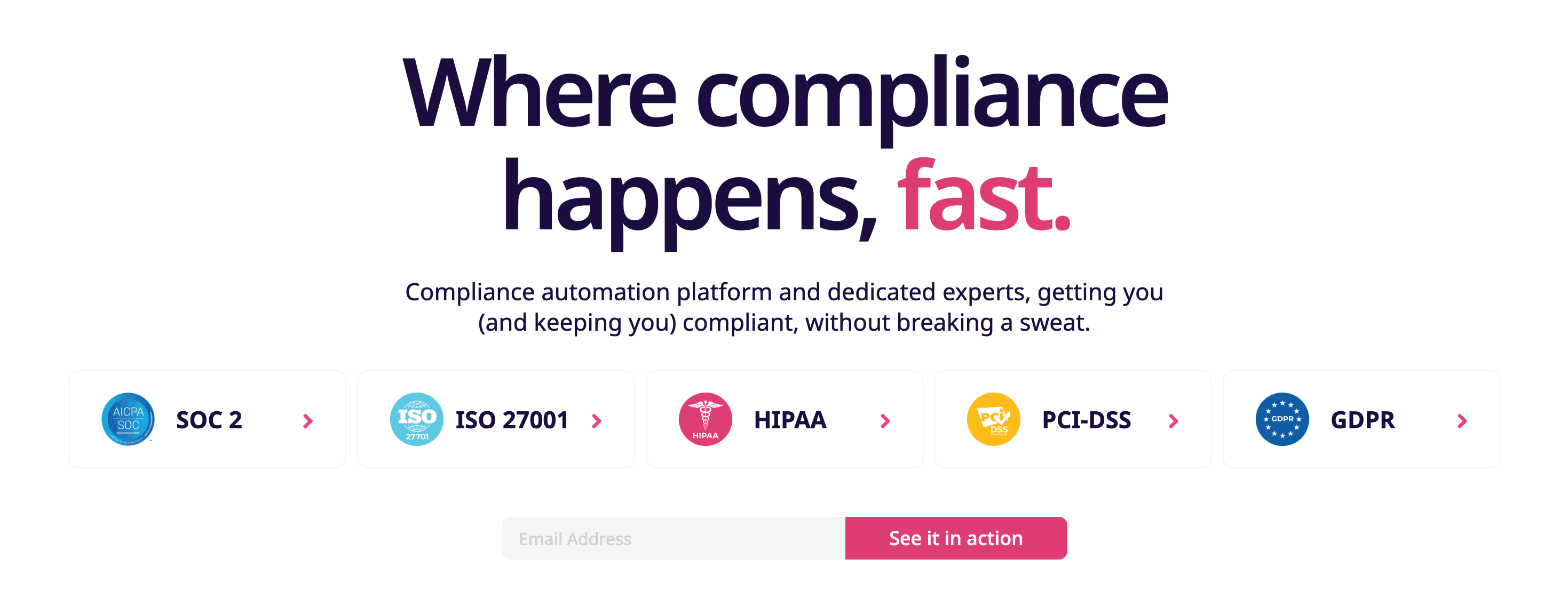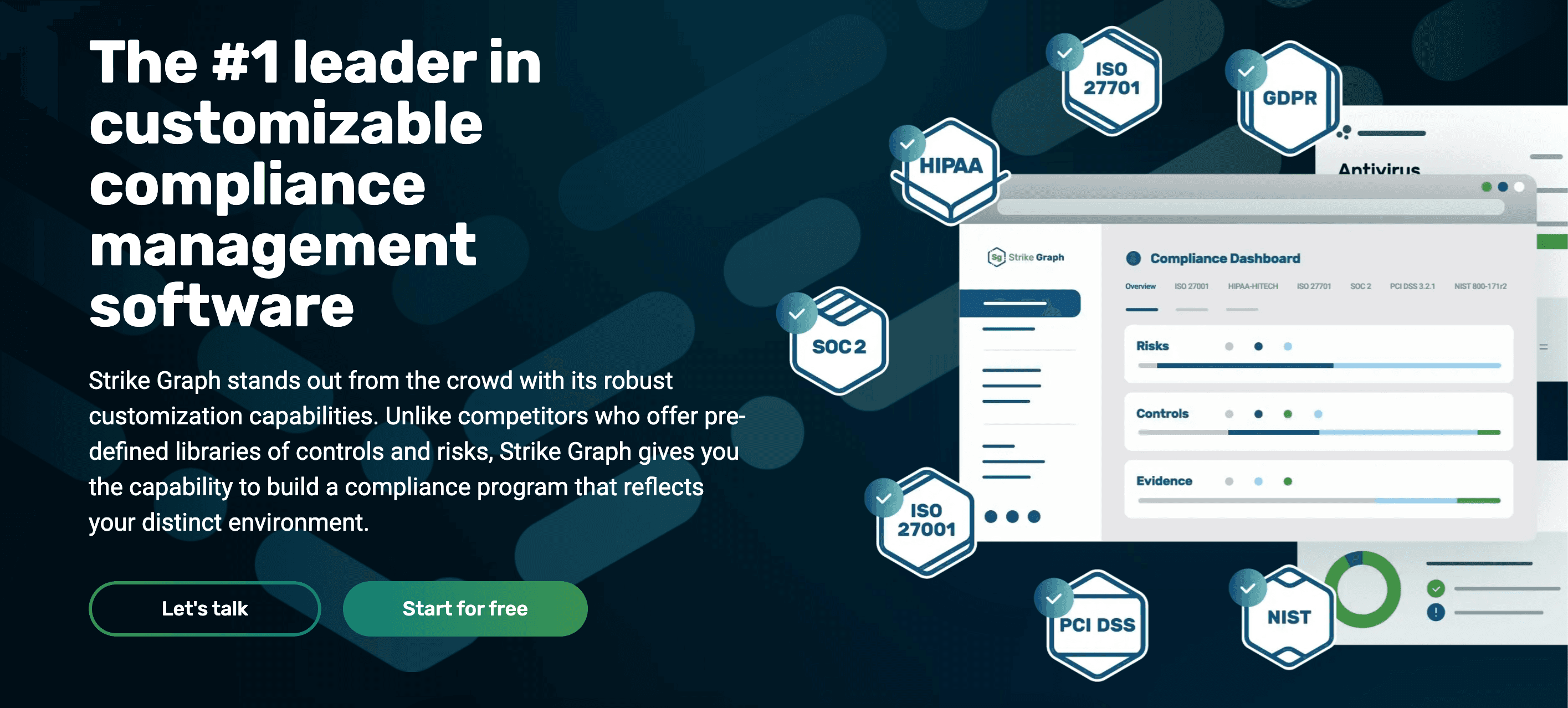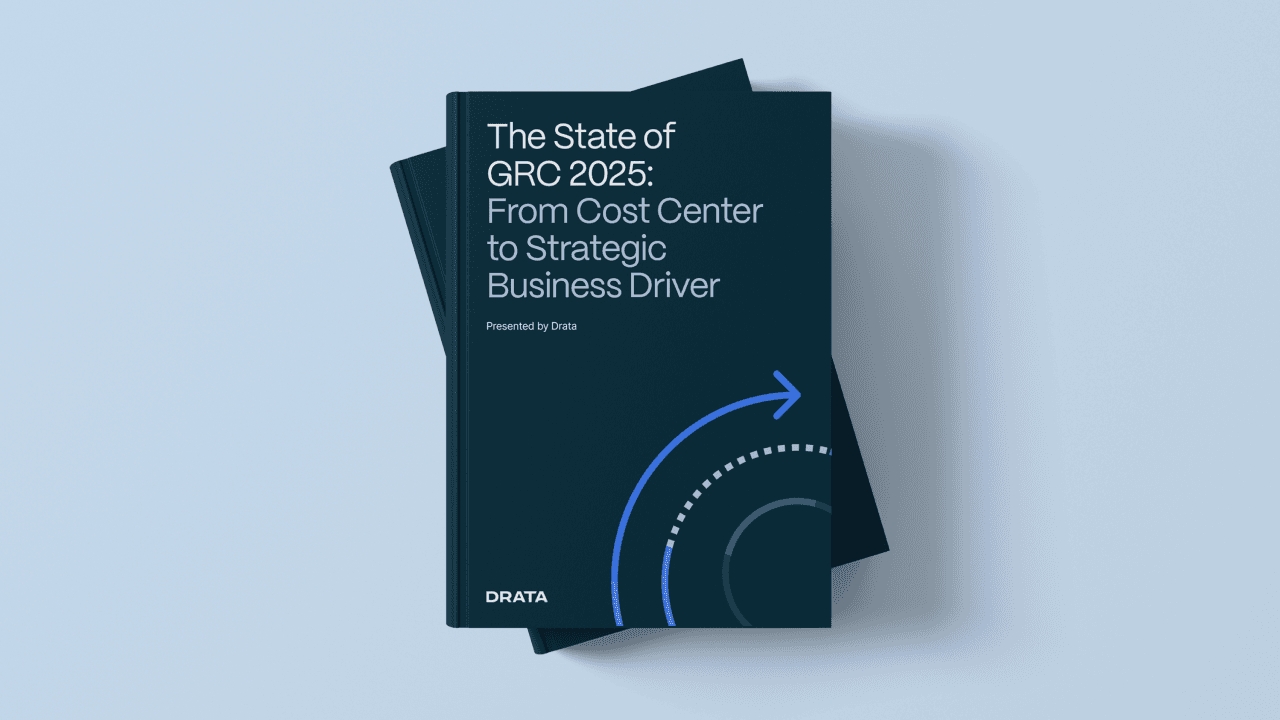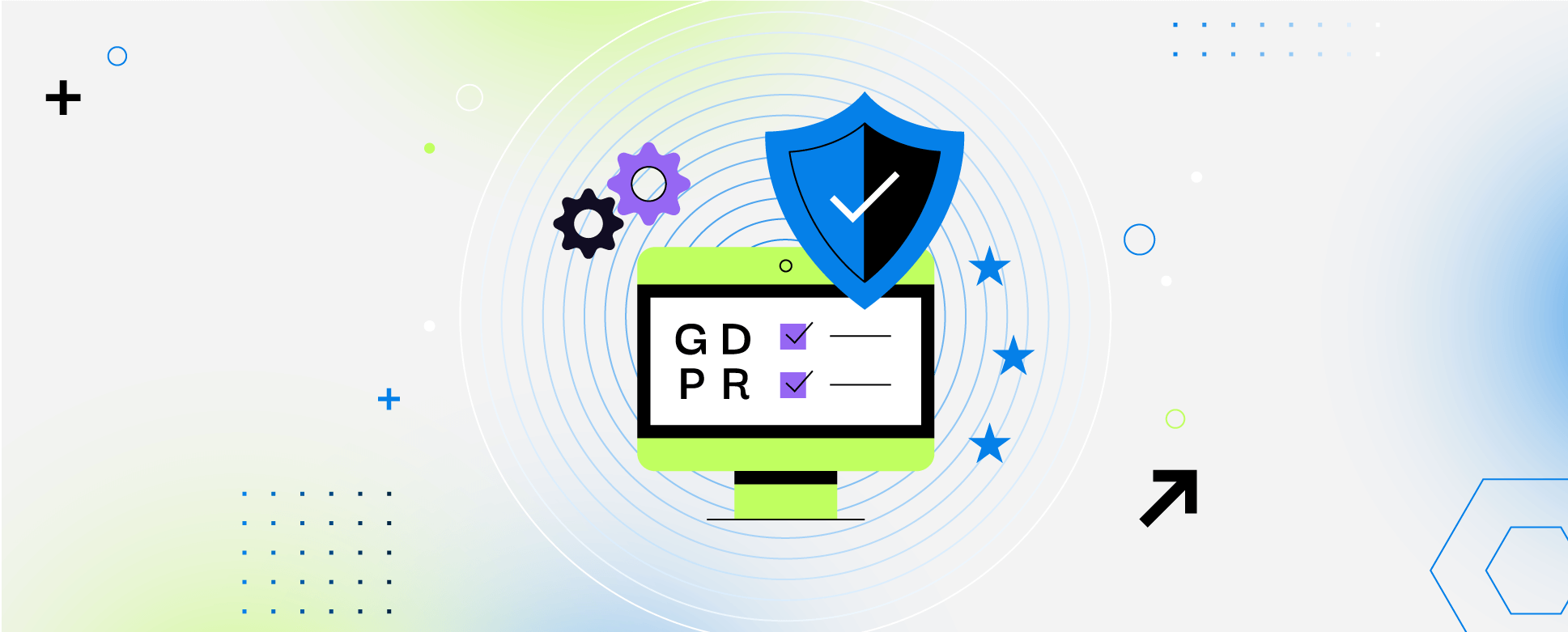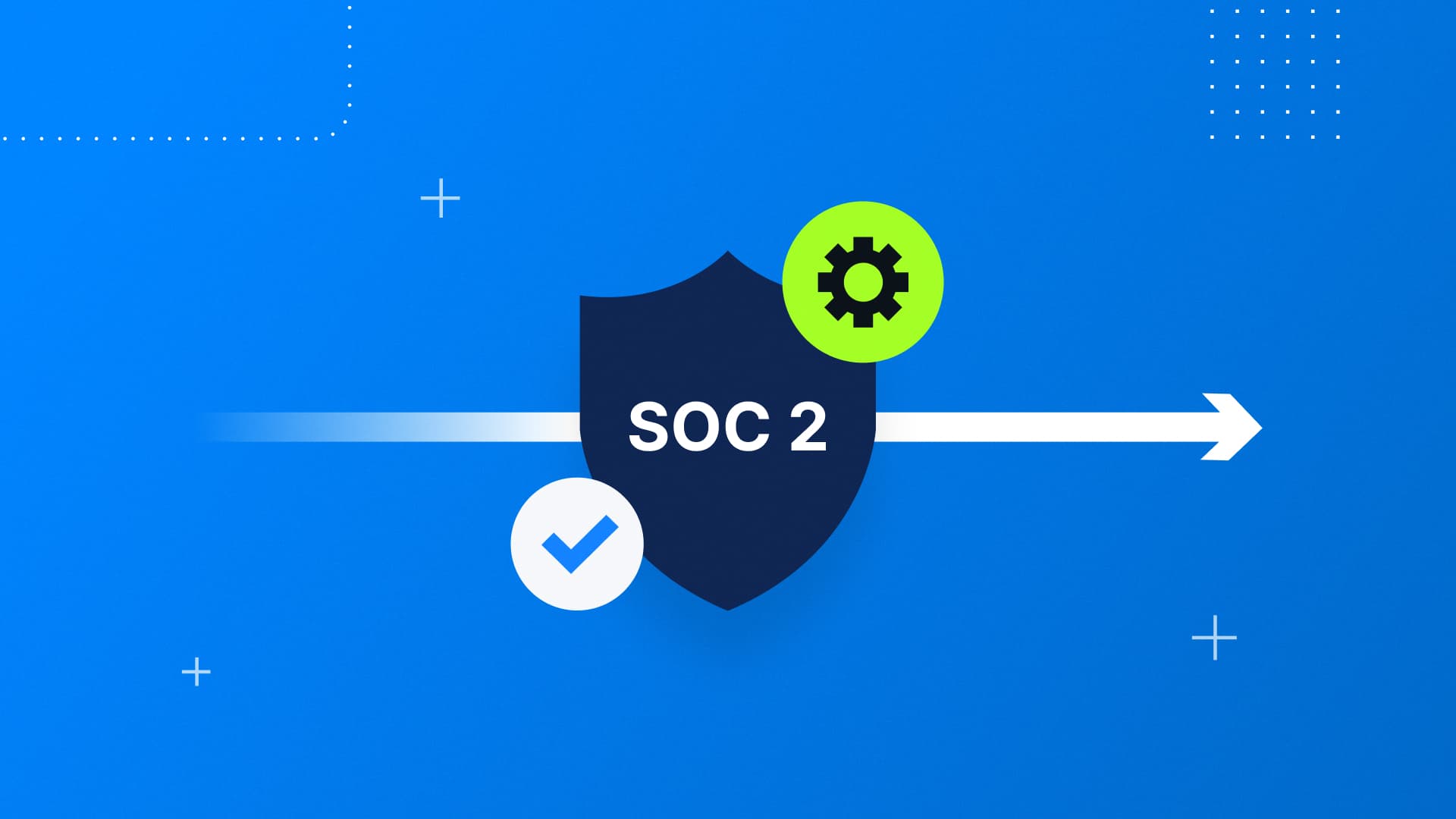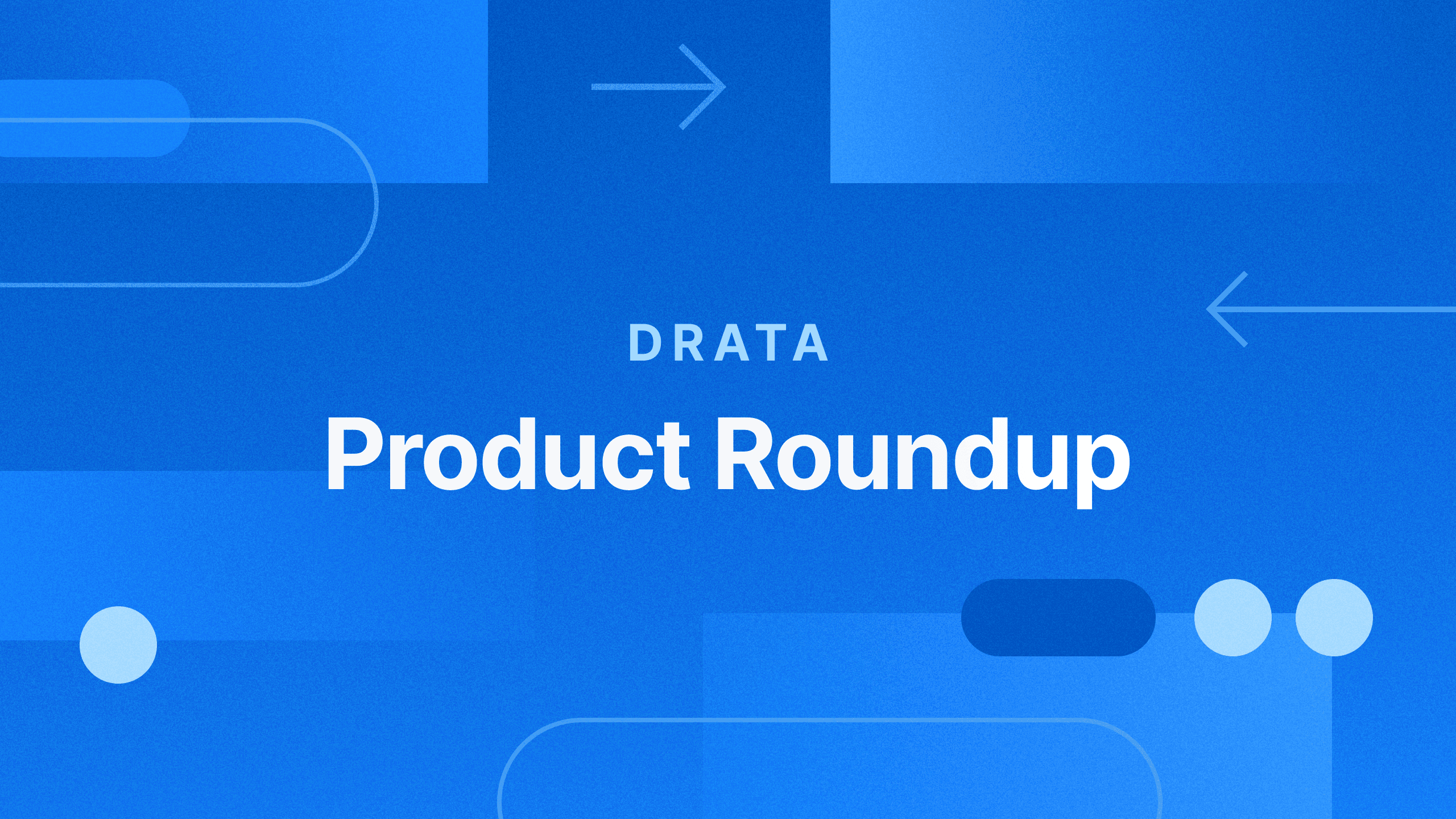Top 10 Secureframe Alternatives & Competitors in 2025
Shopping around for Secureframe alternatives? Compare features, automation, integrations, and support to find the right GRC platform for your business.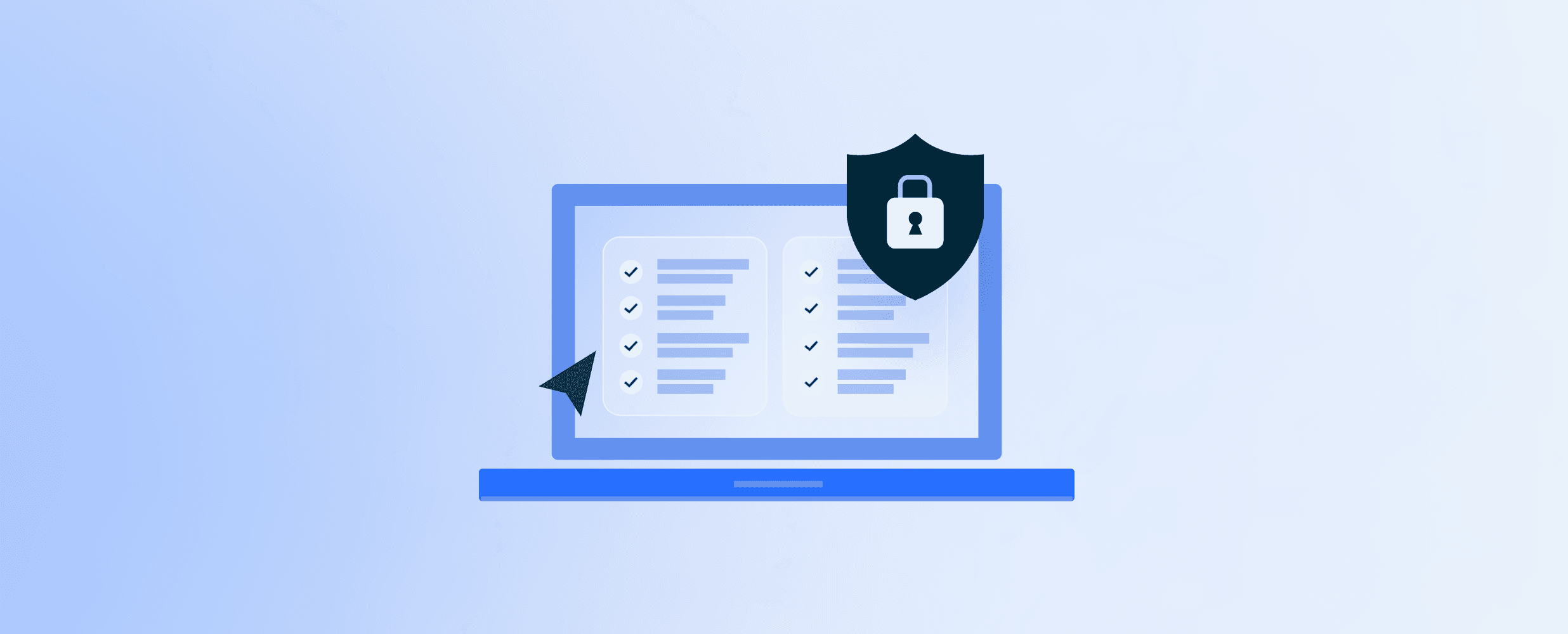
The right GRC platform should do more than help you pass an audit. It should make compliance a seamless part of your security program, cut down on manual work, and provide real visibility into risk. It should also come with a team that understands compliance inside and out—because software alone won’t get you audit-ready.
While Secureframe is a popular choice, it doesn’t fit every team’s needs. Some companies outgrow its limited integration capabilities (particularly for custom applications and features), while others need more flexibility or better hands-on support.
In this guide, we compare the top Secureframe alternatives in the market with an in-depth look at features, user feedback, and ideal use cases. Whether you're after deeper automation, a more intuitive experience, or a platform that scales with your business, this breakdown will help you find the right fit.
How to Choose a Secureframe Alternative
Choosing a compliance platform means finding a tool that cuts down on busy work, simplifies audits, and gives you a clear picture of your security risks without adding extra headaches.
Below, we break down the main features and business considerations that should guide your decision, so you’re better equipped to find a platform that fits your company’s size, security needs, and long-term compliance strategy.
Non-Negotiable Features
The best compliance solutions don’t stop at automation—-they offer an integrated approach to managing audits, security controls, and risk through:
Multi-Framework Compliance Support
Most businesses need to comply with multiple frameworks, including SOC 2, ISO 27001, GDPR, HIPAA, and PCI DSS. Your platform of choice should handle them all without forcing you to juggle different tools for different audits.
Why it matters: If your company expands into new markets or industries, you don’t want to switch compliance tools just to meet evolving requirements.
Automation for Audits and Evidence Collection
Look for a platform that continuously collects evidence, monitors controls, and streamlines audit workflows, so your team can focus on actual security.
Why it matters: The last thing you want your team to do before an audit is dig through emails and spreadsheets for missing documentation. Automated evidence collection keeps everything organized, up to date, and ready for when the auditors come knocking.
Integration with Existing Tools
Compliance doesn’t happen in isolation. Your platform should integrate with the tools your team already relies on to manage security, identity, and business operations, including cloud providers, identity and access management solutions, project management and ticketing systems, and security monitoring tools.
Platforms that offer built-in vendor risk management features provide even greater value, as they enable you to assess and mitigate third-party security risks directly within your compliance workflows.
Why it matters: Compliance works best when it’s built into your existing workflows, not treated as a separate, manual process. Real-time integrations keep everything in sync.
Real-Time Monitoring and Risk Insights
Waiting until audit season to check your compliance status is a recipe for (often unpleasant) surprises. A strong platform provides continuous monitoring, real-time alerts, and clear visibility into risks before they become problems.
Why it matters: An expired certificate, a misconfigured setting, or unauthorized access can put your compliance—and security—at risk. Catching these issues early prevents last-minute fire drills and keeps your organization audit-ready year-round.
Customizable Controls and Workflows
Every company has unique security policies and risk management processes. Your compliance tool should let you customize workflows, control mappings, and evidence tracking, so it fits how your team actually operates.
Why it matters: Compliance management software should work for you, not the other way around. If you have to change how you do things just to fit a tool’s limitations, then you’re not using the right tool.
User-Friendly Experience and Live Support
A compliance tool shouldn’t be complicated to use. Look for platforms with intuitive dashboards, comprehensive reporting, and responsive support.
Why it matters: Clunky software, slow support, and a steep learning curve will frustrate your team and derail compliance efforts when every minute counts. A well-designed platform with expert support keeps everything running smoothly, from onboarding to audit day.
Trust Center Capabilities
A strong compliance platform should help you demonstrate security and compliance to customers and partners in real-time. A Trust Center gives your business a centralized place to showcase security posture, share compliance reports, and simplify security reviews.
Why it matters: When security is easy to verify, trust follows. A well-integrated Trust Center reduces friction in sales, helps GRC teams support customer success, and makes scaling your business smoother.
What Does Your Business Need?
A platform can have all the right features, but if it doesn’t fit your business, it won’t get you far. And that includes not just where you are today but also where you’re headed. Before committing, consider:
Scalability
Your compliance needs today aren’t the same as they’ll be in a year. A good platform should support your business as it grows, whether that means adding new frameworks, managing more users, or integrating with a growing tech stack.
What to look for:
Flexible user management for growing teams
Features that adapt to increasing security and regulatory requirements
Crossover of controls between frameworks
Enterprise-grade flexibility to customize automated compliance workflows, including tailored control testing and custom formulas for automated calculations
Adaptable automation that aligns with specific risk landscapes, regulatory requirements, and operational processes
Industry and Geography-Specific Requirements
If your business operates in highly regulated sectors like finance, healthcare, and government, you need specialized compliance tools that support sector-specific frameworks and reporting requirements. Similarly, if you’re looking to expand into new markets, you must ensure your compliance platform keeps up with regional regulations and emerging laws like DORA (Digital Operational Resilience Act) in the EU, CCPA in California, or evolving AI and cybersecurity regulations.
What to look for:
Support for industry-specific frameworks such as HIPAA for healthcare, FedRAMP for government vendors, or NIST for critical infrastructure
Adaptability to emerging compliance laws like DORA and the AI Act
Geographic compliance readiness, ensuring data residency, localization, and region-specific risk assessments are built into automated workflows
Cross-border compliance management, helping multinational organizations track and manage compliance across multiple jurisdictions without duplicating work
The Human Factor
Automation is great, but compliance isn’t just a software problem. Having access to compliance advisors, strong partnerships with auditors, and a responsive customer success team can make the difference between a smooth audit and an expensive, time-consuming one.
What to look for:
Access to compliance and audit experts
Dedicated support for complex compliance challenges
A network of auditor alliances and partnerships to streamline certification
Top 10 Secureframe Alternatives
Now that you know what to look for in a compliance platform, let’s compare the top Secureframe alternatives that might be up to the task.
1. Drata
Drata is a full-scale Trust Management platform that helps security and GRC teams stay ahead of audits, minimize manual work, and strengthen their security posture. The platform builds compliance into your daily workflows, providing real-time monitoring, vendor and third-party risk management, and an unmatched level of expert guidance.
With continuous control monitoring, you’re always audit-ready. No more compliance guesswork or scrambling once a year—Drata keeps everything in check, automatically collecting evidence and tracking SOC 2, ISO 27001, GDPR, HIPAA, PCI DSS, and more in a single, user-friendly platform. Whether you’re managing one framework or several, Drata gives you a real-time view of your security posture, so you always know where you stand.
But technology alone doesn’t solve compliance challenges—having the right people in your corner does. Every company gets direct access to a Customer Success Manager through real-time live chat, email, or Zoom. From aligning controls to answering auditor questions, Drata’s experts help you move faster, avoid roadblocks, and get compliance right the first time around.
Main Features:
Tracks security controls continuously, so any compliance gaps are caught and resolved before they become problems
Eliminates manual document requests by gathering audit evidence in real-time, reducing time spent on compliance tasks
Connects with over 300 tools—including AWS, Azure, GitHub, Okta, and Jira—to automatically sync compliance data
Supports SOC 2, ISO 27001, HIPAA, GDPR, PCI DSS, and more, allowing businesses to manage multiple compliance programs in one place
Provides a centralized hub to track risks, manage security policies, and showcase compliance to customers via Trust Center
Simplifies user access monitoring, ensuring least-privilege access policies are enforced and reducing the risk of unauthorized data exposure
Vetted relationships with auditors that make the audit process smoother, more predictable, and free of surprises
Ideal For:
Growing companies that want to scale compliance efficiently as they expand into new markets or add new frameworks
Enterprises focused on automation and low-lift implementation
Fast-moving startups that need to achieve compliance quickly without getting bogged down in manual processes
Growing companies that want to scale compliance efficiently as they expand into new markets or add new frameworks
Engineering and security teams that prioritize automation and deep integrations to simplify compliance workflows
Organizations managing multiple frameworks that need a centralized platform for SOC 2, ISO 27001, HIPAA, and beyond—plus tools for vendor risk management and customer trust
G2 and Capterra Ratings:
Pricing:
Pricing details available upon request
2. Vanta
Vanta is a popular compliance automation platform, especially among startups and mid-sized businesses seeking a quick path to SOC 2 and ISO 27001 compliance. With a focus on fast implementation and lightweight automation, Vanta helps companies become compliance-ready without a steep learning curve. The platform is known for its out-of-the-box integrations, automated evidence collection, and security monitoring, making it a go-to option for teams that need compliance swiftly.
Reviewers often praise Vanta for its user-friendly platform and responsive support team. While Vanta is great for getting started, some users report limitations in integrations and customization, with a particular emphasis on inflexible workflows.
Main Features:
Tracks compliance controls across cloud providers, identity management tools, and security platforms
Connects with tools like AWS, GCP, Okta, and GitHub to streamline evidence collection
Provides structured processes for first-time compliance teams
Offers compliance policy templates and basic vendor tracking
Allows companies to showcase compliance status to customers through a public security page
Ideal for:
Startups and growing businesses that need to get audit-ready quickly with minimal setup
Companies looking for a streamlined approach to SOC 2, ISO 27001, and other compliance frameworks with pre-built automation
Organizations with straightforward compliance needs that don’t require extensive integrations, advanced risk management, or highly customizable workflows
G2 and Capterra Ratings:
Pricing:
Pricing details available upon request
3. Hyperproof
Hyperproof is a compliance and risk management platform built for organizations that need flexibility and automation in their security programs. The platform provides a structured yet adaptable system for managing compliance across multiple frameworks, vendors, and security controls.
Users appreciate Hyperproof’s clean interface, ease of evidence management, and proactive customer support. However, some reviewers note limitations in dashboard customization and reporting, as well as challenges with the complex and time-consuming setup process, which may mean investing in managed services or allocating more internal resources for implementation.
Main Features
Pulls audit evidence directly from integrated security and IT systems
Allows teams to map controls across multiple compliance frameworks
Centralizes risk identification, assessment, and mitigation efforts in one place
Connects with Jira, AWS, Slack, and other platforms
Ideal for:
Enterprises handling multiple compliance frameworks and navigating complex regulations
Teams that need cross-departmental collaboration for compliance workflows
Organizations with large security teams looking for centralized risk and compliance management
G2 and Capterra Ratings:
Pricing:
Pricing details available upon request
4. Sprinto
Sprinto is a cloud-native compliance automation platform designed to simplify and accelerate security compliance for fast-growing tech companies. The platform offers pre-approved security compliance programs and integrates with over 200 cloud services, providing continuous monitoring and real-time visibility into an organization's security posture. Its easy setup and integration-friendly design make it a strong choice for non-technical leaders.
Users often praise Sprinto for its user-friendly platform and ease of implementation, though some reviewers point to the lack of customization as a drawback, particularly for companies with complex compliance needs.
Main Features:
Streamlines processes for various security standards, including SOC 2 and ISO 27001
Provides real-time tracking of security controls to ensure ongoing compliance
Compatible with over 200 cloud services
Features an intuitive dashboard that simplifies compliance management
Ideal for:
Cloud-native businesses and SaaS startups that need to achieve compliance quickly and efficiently
Non-technical executives and business leaders who want ready-made compliance frameworks to simplify the certification process
Companies focused on fast audit preparation without the burden of manual tasks or complex workflows
G2 and Capterra Ratings:
Pricing:
Pricing details available upon request
5. Scrut Automation
Scrut Automation is an all-in-one GRC platform built to help cloud-native companies streamline security and compliance. It provides continuous cloud security monitoring, automated risk assessments, and a centralized compliance hub, making it easier to manage frameworks like SOC 2, ISO 27001, GDPR, HIPAA, and PCI DSS. Scrut connects with over 70 third-party tools, consolidating security data for a real-time view of compliance health.
Users appreciate Scrut's comprehensive feature set and proactive support team, which makes implementation smoother. However, some reviewers mention that Scrut can feel overwhelming at first, especially for teams that are new to GRC platforms. A few users have also reported occasional system performance issues, including slow load times.
Main Features:
Tracks security controls in real-time, ensuring ongoing compliance with multiple frameworks
Identifies and evaluates risks across assets, vendors, and internal processes
Connects with over 70 cloud and security tools to consolidate compliance and security data
Offers pre-built policy templates for regulatory frameworks
Ideal for:
Cloud-native companies looking for a comprehensive, all-in-one compliance and risk management solution
Security and compliance teams that need continuous monitoring and structured workflows to streamline audits
Organizations managing multiple frameworks that want centralized visibility into security and risk
G2 and Capterra Ratings:
Pricing:
Pricing details available upon request
6. Thoropass
Thoropass (formerly Laika) is a compliance automation platform that integrates in-house auditors and automated evidence collection. It offers a one-stop solution for companies looking to streamline compliance and risk management.
Users often highlight Thoropass’s ease of use, knowledgeable support team, and clear compliance tracking as standout benefits. However, some reviewers have noted challenges with integrations, while others find the platform’s navigation confusing. It’s also worth noting that Thoropass supports a limited range of compliance frameworks, which may not be ideal for organizations with more extensive regulatory requirements.
Main Features:
Gathers and validates compliance data in real-time
Provides direct access to compliance experts and auditors for guidance throughout the process
Centralizes risk management and offers visibility into compliance gaps
Syncs with security and workflow tools
Ideal for:
Companies preparing for their first audit that need direct support from auditors and structured compliance workflows
Teams looking for a combined automation and advisory approach, rather than just a self-service compliance tool
Organizations that prioritize audit readiness but don’t require heavy customization or highly flexible integrations
G2 and Capterra Ratings:
Pricing:
Pricing details available upon request
7. AuditBoard
AuditBoard is a cloud-based platform that unifies audit, risk, and compliance management into a cohesive solution. Designed to streamline processes and enhance collaboration, it caters to several frameworks, including SOC 2, ISO, NIST, and PCI. The platform offers modules for SOX management, operational audits, risk oversight, and compliance management, all within an intuitive interface.
Users commend AuditBoard for its user-friendly design and comprehensive feature set, though some reviewers have noted that the initial setup can be cumbersome, requiring a learning curve to fully leverage AuditBoard’s capabilities. While the platform offers extensive features, integrating them seamlessly into existing workflows may present challenges.
Main Features:
Supports internal audits, SOX compliance, and operational audits with automated workflows and customizable templates
Provides a centralized risk register, mapping compliance requirements to ongoing risk assessments
Enables real-time updates, version control, and structured action tracking for audit teams
Ideal for:
Large enterprises looking for a unified platform to manage extensive audit and compliance requirements
Companies in highly regulated industries like finance and healthcare
Companies that need to comply with various standards and want an integrated solution
G2 and Capterra Ratings:
Pricing:
Pricing details available upon request
8. Scytale
Scytale makes it easier for small and medium-sized businesses to achieve and maintain security and privacy certifications like SOC 2, ISO 27001, HIPAA, PCI DSS, and GDPR. The platform combines automated evidence collection, continuous control monitoring, and auditor-approved policy templates with dedicated compliance experts to guide teams through the entire certification process.
Users highlight Scytale’s intuitive dashboard and dedicated compliance managers, and many appreciate the proactive support and structured workflows that guide them through each step. However, some reviewers mention limited integrations and a need for more customization in policy management, particularly for businesses with unique compliance needs.
Main Features:
Gathers and validates compliance data in real-time
Expert compliance guidance for teams new to regulatory requirements
Provides auditor-approved templates that can be tailored to match internal policies
Ideal For:
Startups and growing businesses that want a simplified compliance process without complexity
Companies without dedicated compliance teams that need expert guidance and automation to stay audit-ready
Teams looking for a streamlined, hands-off compliance workflow with minimal manual effort
Organizations undergoing their first SOC 2 or ISO 27001 audit that need structured support and automation
G2 and Capterra Ratings:
Pricing:
Pricing details available upon request
9. Lacework
Lacework provides a comprehensive solution for securing cloud environments, offering features that span from code security to cloud workload protection. The platform combines security monitoring, anomaly detection, and compliance automation, making it well-suited for DevOps and SecOps teams overseeing cloud infrastructure across AWS, Azure, and Google Cloud.
Users appreciate Lacework's ability to automate compliance reporting and provide real-time visibility into security posture, though some reviewers have noted that the dashboard can be tricky to navigate.
Main Features:
Provides real-time insights into cloud configurations and activities
Utilizes machine learning to establish baselines of normal behavior within cloud environments, enabling the detection of anomalies and potential threats without manual rule creation
Offers compatibility with various CI/CD pipelines and development tools
Ideal for:
Cloud security and DevOps teams that need real-time visibility into security risks and compliance status
Organizations running workloads across AWS, Azure, and Google Cloud that require a unified security and compliance solution
G2 and Capterra Ratings:
Pricing:
Pricing details available upon request
10. Strike Graph
Strike Graph stands out by offering modular and adaptable compliance frameworks, enabling businesses to build security programs that fit their specific needs rather than conforming to rigid templates. The platform prioritizes flexibility and AI-driven automation, streamlining security assessments and risk management. This approach makes it particularly useful for companies that require custom compliance workflows instead of predefined, one-size-fits-all processes.
Users appreciate Strike Graph's intuitive interface and the efficiency it brings to the compliance process. The platform's ability to simplify complex frameworks and provide clear guidance is frequently highlighted. Some reviewers have noted that while the platform is user-friendly, there is a desire for more proactive engagement from the Strike Graph team, such as regular check-ins to monitor progress and address compliance needs.
Main Features:
Allows organizations to adapt security controls based on unique regulatory or business requirements
AI-powered evidence collection and validation
Dynamic reporting and visibility into compliance progress as security initiatives evolve
Ideal for:
Companies with specialized data security needs that require custom compliance structures rather than standardized frameworks
Teams looking to incorporate AI automation to enhance compliance efficiency and reduce manual workloads
Organizations juggling multiple compliance frameworks that need a flexible, scalable platform to manage everything in one place
G2 and Capterra Ratings:
Pricing:
Pricing details available upon request
An Overview of Secureframe Alternatives
Want to easily compare the most popular Secureframe alternatives? Check out the table below:
Platform | Best For (Company Size & Industry) | Best For (Teams & Roles) |
Drata | Fast-growing startups, mid-market, and enterprise companies that need continuous compliance automation with a full suite of GRC capabilities. Drata provides advanced security monitoring, seamless integrations, and a comprehensive compliance framework that includes a Trust Center to expedite security reviews and vendor risk management tools to streamline third-party security assessments | CISOs, Heads of GRC, security and engineering teams looking for robust integrations and real-time security monitoring |
Hyperproof | Companies balancing automation and customization, looking for a compliance platform that adapts to evolving security frameworks and regulatory requirements | GRC professionals and security teams who need a balance of automation and customization to support compliance across evolving regulatory landscapes |
Sprinto | Fast-growing SaaS and cloud-native companies that need an automation-first approach to compliance with deep integrations to streamline security and audit workflows | Engineering and security teams that want an automation-first, developer-friendly compliance solution |
Scrut Automation | Organizations handling complex security and risk frameworks that require real-time compliance tracking, automated control monitoring, and structured risk management | CISOs, compliance managers, and risk teams prioritizing cloud security posture management |
Thoropass | Businesses preparing for audits that want an all-in-one compliance solution with built-in auditor connections and expert advisory support | Security and compliance teams looking for a compliance platform that integrates audits, controls, and expert guidance in one place |
Vanta | Startups and small businesses seeking a fast, lightweight compliance solution to get SOC 2 and ISO 27001 certification with minimal manual effort | Founders, security leads, and operations teams managing their first compliance certification and seeking a fast, structured approach to SOC 2 and ISO 27001 |
AuditBoard | Large enterprises with multi-framework compliance needs that require a unified platform for internal audits, risk assessments, and regulatory tracking | Audit, risk, and compliance teams at large organizations that require a scalable solution for tracking multiple frameworks and internal audits |
Scytale | Small and medium-sized businesses that need an easy-to-use compliance platform with automation and hands-on expert guidance to streamline audits | Operations and compliance teams that need an easy-to-follow compliance process with guided workflows and expert-driven support |
Lacework | Cloud-focused enterprises managing security and compliance across AWS, Azure, and GCP that need real-time security insights and behavioral analytics | DevOps and SecOps teams that need automated security monitoring, compliance tracking, and anomaly detection for multi-cloud environments |
Strike Graph | Smaller companies that need an AI-powered compliance automation platform to create adaptable workflows and streamline security assessments | Security and compliance teams that need flexible workflows |
Drata: GRC That Works for You—Not the Other Way Around
Compliance shouldn’t feel like an endless cycle of manual work, missing documentation, and last-minute audit scrambles. Drata eliminates the busywork and puts you in complete control of your security and compliance—without the stress. As a central hub for collaboration, Drata brings teams together on a single trust management platform to work more efficiently and build trust faster—with prospects, partners, and customers alike. Businesses can confidently automate their GRC program with expert support and a platform that scales as you grow, simplifying framework management so you can stay ahead of evolving regulations without missing a beat.
But technology alone isn’t enough. We pair automation with real human expertise, from dedicated Customer Success Managers to compliance specialists who guide you through every step of the process. Plus, Drata meets you where you are—whether you’re preparing for your first audit or scaling a multi-framework compliance program, our team ensures you’re never left guessing, never chasing documentation, and never stuck handling compliance alone.
No more scrambling. No more uncertainty. Just a compliance program that moves as fast as your business does.

